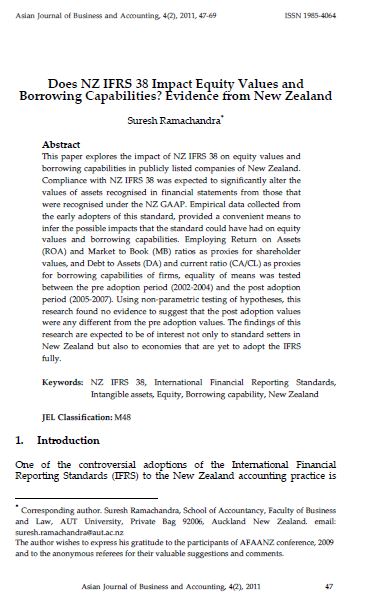Does NZ IFRS 38 Impact Equity Values and Borrowing Capabilities? Evidence from New Zealand
Abstract
This paper explores the impact of NZ IFRS 38 on equity values and
borrowing capabilities in publicly listed companies of New Zealand.
Compliance with NZ IFRS 38 was expected to significantly alter the
values of assets recognised in financial statements from those that
were recognised under the NZ GAAP. Empirical data collected from
the early adopters of this standard, provided a convenient means to
infer the possible impacts that the standard could have had on equity
values and borrowing capabilities. Employing Return on Assets
(ROA) and Market to Book (MB) ratios as proxies for shareholder
values, and Debt to Assets (DA) and current ratio (CA/CL) as proxies
for borrowing capabilities of firms, equality of means was tested
between the pre adoption period (2002â€2004) and the post adoption
period (2005â€2007). Using nonâ€parametric testing of hypotheses, this
research found no evidence to suggest that the post adoption values
were any different from the pre adoption values. The findings of this
research are expected to be of interest not only to standard setters in
New Zealand but also to economies that are yet to adopt the IFRS
fully.
Keywords: NZ IFRS 38, International Financial Reporting Standards,
Intangible assets, Equity, Borrowing capability, New Zealand
Downloads








